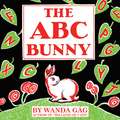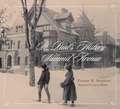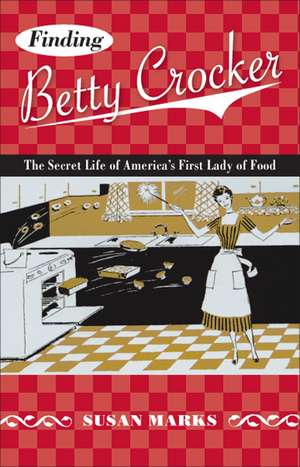Finding Betty Crocker: The Secret Life of America’s First Lady of Food: Fesler-Lampert Minnesota Heritage
Autor Susan Marksen Limba Engleză Paperback – 19 mar 2007
While Betty Crocker is often associated with 1950s happy homemaking, she originally belonged to a different generation. Created in 1921 as a “friend to homemakers” for the Washburn Crosby Company (a forerunner to General Mills) in Minneapolis, her purpose was to answer consumer mail. “She” was actually the women of the Home Service Department who signed Betty’s name. Eventually, Betty Crocker’s local radio show on WCCO expanded, and audiences around the nation tuned her in, tried her money-saving recipes, and wrote Betty nearly 5,000 fan letters per day. In Finding Betty Crocker, Susan Marks offers an utterly unique look at the culinary and marketing history of America’s First Lady of Food.
Susan Marks is a writer/producer/director with her own production company, Lazy Susan Productions.
Susan Marks is a writer/producer/director with her own production company, Lazy Susan Productions.
Din seria Fesler-Lampert Minnesota Heritage
-
 Preț: 105.59 lei
Preț: 105.59 lei -
 Preț: 111.53 lei
Preț: 111.53 lei -
 Preț: 89.06 lei
Preț: 89.06 lei -
 Preț: 59.57 lei
Preț: 59.57 lei -
 Preț: 87.43 lei
Preț: 87.43 lei -
 Preț: 90.11 lei
Preț: 90.11 lei -
 Preț: 98.76 lei
Preț: 98.76 lei -
 Preț: 77.73 lei
Preț: 77.73 lei -
 Preț: 95.27 lei
Preț: 95.27 lei - 19%
 Preț: 76.17 lei
Preț: 76.17 lei - 15%
 Preț: 163.22 lei
Preț: 163.22 lei -
 Preț: 138.47 lei
Preț: 138.47 lei - 19%
 Preț: 126.79 lei
Preț: 126.79 lei - 13%
 Preț: 102.71 lei
Preț: 102.71 lei - 18%
 Preț: 77.85 lei
Preț: 77.85 lei - 18%
 Preț: 78.37 lei
Preț: 78.37 lei -
 Preț: 67.03 lei
Preț: 67.03 lei -
 Preț: 67.58 lei
Preț: 67.58 lei - 18%
 Preț: 51.16 lei
Preț: 51.16 lei - 13%
 Preț: 94.49 lei
Preț: 94.49 lei - 17%
 Preț: 52.25 lei
Preț: 52.25 lei - 13%
 Preț: 87.65 lei
Preț: 87.65 lei - 16%
 Preț: 85.79 lei
Preț: 85.79 lei - 16%
 Preț: 85.79 lei
Preț: 85.79 lei - 16%
 Preț: 86.31 lei
Preț: 86.31 lei - 17%
 Preț: 83.57 lei
Preț: 83.57 lei - 22%
 Preț: 104.21 lei
Preț: 104.21 lei - 16%
 Preț: 85.25 lei
Preț: 85.25 lei - 13%
 Preț: 169.43 lei
Preț: 169.43 lei - 7%
 Preț: 94.75 lei
Preț: 94.75 lei - 17%
 Preț: 106.10 lei
Preț: 106.10 lei -
 Preț: 128.80 lei
Preț: 128.80 lei -
 Preț: 126.32 lei
Preț: 126.32 lei -
 Preț: 140.12 lei
Preț: 140.12 lei
Preț: 140.46 lei
Nou
Puncte Express: 211
Preț estimativ în valută:
26.88€ • 28.14$ • 22.24£
26.88€ • 28.14$ • 22.24£
Carte indisponibilă temporar
Doresc să fiu notificat când acest titlu va fi disponibil:
Se trimite...
Preluare comenzi: 021 569.72.76
Specificații
ISBN-13: 9780816650187
ISBN-10: 0816650187
Pagini: 288
Ilustrații: 76 halftones
Dimensiuni: 140 x 210 x 15 mm
Greutate: 0.34 kg
Ediția:First edition
Editura: University of Minnesota Press
Colecția Univ Of Minnesota Press
Seria Fesler-Lampert Minnesota Heritage
ISBN-10: 0816650187
Pagini: 288
Ilustrații: 76 halftones
Dimensiuni: 140 x 210 x 15 mm
Greutate: 0.34 kg
Ediția:First edition
Editura: University of Minnesota Press
Colecția Univ Of Minnesota Press
Seria Fesler-Lampert Minnesota Heritage
Notă biografică
Susan Marks's interest in Betty Crocker began during her stint as a tour guide for the Minnesota Historical Society, then evolved into a master's thesis, doc-u-mentary film project, and, ultimately, this book. Currently, she writes and produces videos for corporations as well as for nonprofits and the arts.
Extras
Introduction
The day before the Fourth of July, I stopped by my parents' house and was not surprised to find my mother busy in the kitchen, baking a red-, white-, and blue-layered cake from Betty Crocker mixes.
"Do you remember when I thought you were Betty Crocker?" I asked.
My mother smiled. "I sure do."
"You were about seven," she recalled, "and it was your turn to bring the treat bucket to your Brownie troop meeting. Instead of buying something, I thought it would be fun to bake cookies together. So I found a chocolate chip cookie recipe from my files called 'Betty Crocker's Bisquickies.'"
"You seemed delighted, so I suggested we bake another batch sometime," my mother explained. "Then you stood right here at the kitchen counter and started flipping through my Betty Crocker cookbook and became convinced that Betty's picture was actually me."
While my mother and I baked the Bisquickies, she shared her childhood memories of an ongoing debate about Betty Crocker. Was she a real person? Household opinion was deeply divided. In the spring of 1950, my grandma wrote to Betty Crocker for some advice on meal planning and received a reply in return. But, she wondered, was the letter signed "Cordially yours" truly from "Betty" herself?
Absolutely, thought my mother, because Betty had her own radio show and cake mixes. Years later, a women's magazine called Betty "an ageless thirty-two." As a kid, my mother's powers of reason were wholeheartedly straightforward. In her mind, "ageless" was proof that Betty Crocker had an age, just as any real woman did. But my grandmother still wasn't so sure.
Fast-forward to 1998: my grandmother was visiting from out of town. She was thrilled to hear that I was writing a book on Betty Crocker and promised to bring Betty Crocker recipe booklets on her next visit. As we sat and talked, memories came flooding back. For years, she saved Betty Crocker coupon "points" to help my mom fill her hope chest with Betty's Oneida "My Rose" silver pattern. I was surprised to hear my grandmother speak of how controversial cake mixes such as Betty's were when they first came on the market.
With her next visit came an unexpected surprise. Standing in my parents' kitchen, my grandmother handed me something she had cherished since 1950. It was that letter from Betty Crocker. For the first time in my life, I was speechless.
I never imagined that this little piece of history would survive all these years. So much of culinary history is steeped in an oral tradition -- mothers teaching daughters, who in turn share their stories of kitchen wisdom with daughters of their own. But Betty Crocker had a hand in changing all that. Before cookbooks and recipe files were commonplace, Betty encouraged my grandma, and millions of Americans like her, to write in search of answers, guidance, or friendly advice.
Into this great divide stepped Betty Crocker with her kitchen inspirational, "You can do it, and I can help you." Empowered by her words, countless women -- and men -- made a collective connection, not to Betty Crocker the corporate symbol, but to Betty Crocker the person. But who was she, really? Finding Betty Crocker chronicles an American search for her identity that stretches over fifty states and across the turn of a century.
"Born" in 1921 in Minneapolis, Minnesota, to proud corporate parents, Betty Crocker has grown, over eight decades, into one of the most successful branding campaigns the world has ever known. In 1945, Fortune magazine named her the second most popular American woman, right behind Eleanor Roosevelt, and dubbed Betty America's First Lady of Food. And in 2000, an Adweek poll revealed that a majority "voted" for Betty Crocker in a mock presidential contest, beating out a ballot of five other (Mr. Clean, Mr. Goodwrench, Aunt Jemima, Ronald McDonald, and Cap'n Crunch) brand icons.
What is it about Betty that has motivated so many Americans to award her a place in their hearts and minds? The sheer magnitude -- and longevity -- of her popularity speaks volumes of the need she has fulfilled in countless lives. Millions have traveled to Minneapolis to tour the Betty Crocker Kitchens, hoping to catch a glimpse of this beloved national icon. And more than a few devoted fans left in tears when they discovered it was impossible to meet her.
But to all the people she's helped, instructed, and even inspired, Betty Crocker has heart. And so she lives on. As for her enduring appeal, perhaps this Depression-era radio listener expressed it best, "Your talks, Betty Crocker, have given me hope."
Copyright © 2005 by Susan Marks
The day before the Fourth of July, I stopped by my parents' house and was not surprised to find my mother busy in the kitchen, baking a red-, white-, and blue-layered cake from Betty Crocker mixes.
"Do you remember when I thought you were Betty Crocker?" I asked.
My mother smiled. "I sure do."
"You were about seven," she recalled, "and it was your turn to bring the treat bucket to your Brownie troop meeting. Instead of buying something, I thought it would be fun to bake cookies together. So I found a chocolate chip cookie recipe from my files called 'Betty Crocker's Bisquickies.'"
"You seemed delighted, so I suggested we bake another batch sometime," my mother explained. "Then you stood right here at the kitchen counter and started flipping through my Betty Crocker cookbook and became convinced that Betty's picture was actually me."
While my mother and I baked the Bisquickies, she shared her childhood memories of an ongoing debate about Betty Crocker. Was she a real person? Household opinion was deeply divided. In the spring of 1950, my grandma wrote to Betty Crocker for some advice on meal planning and received a reply in return. But, she wondered, was the letter signed "Cordially yours" truly from "Betty" herself?
Absolutely, thought my mother, because Betty had her own radio show and cake mixes. Years later, a women's magazine called Betty "an ageless thirty-two." As a kid, my mother's powers of reason were wholeheartedly straightforward. In her mind, "ageless" was proof that Betty Crocker had an age, just as any real woman did. But my grandmother still wasn't so sure.
Fast-forward to 1998: my grandmother was visiting from out of town. She was thrilled to hear that I was writing a book on Betty Crocker and promised to bring Betty Crocker recipe booklets on her next visit. As we sat and talked, memories came flooding back. For years, she saved Betty Crocker coupon "points" to help my mom fill her hope chest with Betty's Oneida "My Rose" silver pattern. I was surprised to hear my grandmother speak of how controversial cake mixes such as Betty's were when they first came on the market.
With her next visit came an unexpected surprise. Standing in my parents' kitchen, my grandmother handed me something she had cherished since 1950. It was that letter from Betty Crocker. For the first time in my life, I was speechless.
I never imagined that this little piece of history would survive all these years. So much of culinary history is steeped in an oral tradition -- mothers teaching daughters, who in turn share their stories of kitchen wisdom with daughters of their own. But Betty Crocker had a hand in changing all that. Before cookbooks and recipe files were commonplace, Betty encouraged my grandma, and millions of Americans like her, to write in search of answers, guidance, or friendly advice.
Into this great divide stepped Betty Crocker with her kitchen inspirational, "You can do it, and I can help you." Empowered by her words, countless women -- and men -- made a collective connection, not to Betty Crocker the corporate symbol, but to Betty Crocker the person. But who was she, really? Finding Betty Crocker chronicles an American search for her identity that stretches over fifty states and across the turn of a century.
"Born" in 1921 in Minneapolis, Minnesota, to proud corporate parents, Betty Crocker has grown, over eight decades, into one of the most successful branding campaigns the world has ever known. In 1945, Fortune magazine named her the second most popular American woman, right behind Eleanor Roosevelt, and dubbed Betty America's First Lady of Food. And in 2000, an Adweek poll revealed that a majority "voted" for Betty Crocker in a mock presidential contest, beating out a ballot of five other (Mr. Clean, Mr. Goodwrench, Aunt Jemima, Ronald McDonald, and Cap'n Crunch) brand icons.
What is it about Betty that has motivated so many Americans to award her a place in their hearts and minds? The sheer magnitude -- and longevity -- of her popularity speaks volumes of the need she has fulfilled in countless lives. Millions have traveled to Minneapolis to tour the Betty Crocker Kitchens, hoping to catch a glimpse of this beloved national icon. And more than a few devoted fans left in tears when they discovered it was impossible to meet her.
But to all the people she's helped, instructed, and even inspired, Betty Crocker has heart. And so she lives on. As for her enduring appeal, perhaps this Depression-era radio listener expressed it best, "Your talks, Betty Crocker, have given me hope."
Copyright © 2005 by Susan Marks
Cuprins
Contents
Introduction
One The Making of an American Myth
Two Betty Goes Hollywood
Three On Betty's Watch
Four Bake Someone Happy
Five Just Add Water!
Six Kitchens of the World
Seven Strangely Familiar
Notes
Acknowledgments
Introduction
One The Making of an American Myth
Two Betty Goes Hollywood
Three On Betty's Watch
Four Bake Someone Happy
Five Just Add Water!
Six Kitchens of the World
Seven Strangely Familiar
Notes
Acknowledgments
